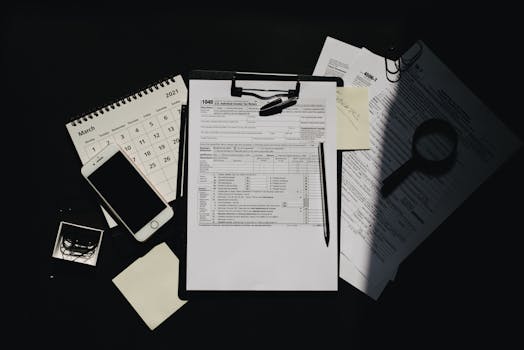Tax Planning: Use Legal Strategies to Reduce Your Taxes and Duties Paid
Tax planning is an essential aspect of personal and business finance management. It involves analyzing your financial situation to ensure that you are taking advantage of all available tax benefits while complying with the law. By employing legal strategies, individuals and businesses can significantly reduce their tax liabilities, thereby increasing their disposable income and enhancing their financial stability.
Understanding Tax Planning
Tax planning is not merely about avoiding taxes; it is about making informed decisions that can lead to tax savings. It encompasses various strategies that can be employed throughout the year, rather than just at tax time. Effective tax planning requires a thorough understanding of tax laws, regulations, and available deductions and credits.
Key Strategies for Effective Tax Planning
There are several legal strategies that individuals and businesses can utilize to minimize their tax burdens. Here are some of the most effective:
- Maximize Deductions: Take advantage of all available deductions, such as mortgage interest, medical expenses, and charitable contributions. For instance, in 2021, the IRS reported that taxpayers who itemized their deductions claimed an average of $27,000.
- Utilize Tax Credits: Tax credits directly reduce the amount of tax owed. Examples include the Earned Income Tax Credit (EITC) and the Child Tax Credit, which can provide substantial savings for eligible taxpayers.
- Contribute to Retirement Accounts: Contributions to retirement accounts like 401(k)s and IRAs can reduce taxable income. For example, in 2023, individuals can contribute up to $22,500 to a 401(k), which can significantly lower their taxable income.
- Consider Tax-Advantaged Accounts: Health Savings Accounts (HSAs) and Flexible Spending Accounts (FSAs) allow individuals to save for medical expenses with pre-tax dollars, effectively reducing taxable income.
- Timing Income and Expenses: Deferring income to the following tax year or accelerating expenses into the current year can help manage tax liabilities. This strategy is particularly useful for self-employed individuals and business owners.
Case Studies: Real-Life Applications of Tax Planning
To illustrate the effectiveness of tax planning strategies, consider the following case studies:
Case Study 1: The Smith Family
The Smith family, with a combined income of $100,000, decided to maximize their tax deductions. They contributed $10,000 to their 401(k) plans, which reduced their taxable income to $90,000. Additionally, they donated $5,000 to charity, further lowering their taxable income. By utilizing these strategies, they were able to save over $2,000 in taxes.
Case Study 2: A Small Business Owner
Jane, a small business owner, implemented tax planning strategies to reduce her business’s tax liability. She took advantage of the Section 179 deduction, allowing her to deduct the full purchase price of qualifying equipment. By investing $20,000 in new equipment, she reduced her taxable income significantly, resulting in a tax savings of approximately $5,000.
The Importance of Staying Informed
Tax laws are constantly changing, and staying informed is crucial for effective tax planning. Regularly reviewing tax regulations and consulting with tax professionals can help individuals and businesses adapt their strategies to maximize savings. For instance, the Tax Cuts and Jobs Act of 2017 introduced several changes that affected both individual and corporate tax rates, making it essential for taxpayers to reassess their tax planning strategies.
Conclusion: The Benefits of Proactive Tax Planning
In conclusion, tax planning is a vital component of financial management that can lead to significant savings. By employing legal strategies such as maximizing deductions, utilizing tax credits, and contributing to retirement accounts, individuals and businesses can effectively reduce their tax liabilities. The case studies presented demonstrate the tangible benefits of proactive tax planning. As tax laws continue to evolve, staying informed and seeking professional advice will ensure that taxpayers can navigate the complexities of the tax system and make the most of their financial resources.
Ultimately, effective tax planning not only reduces taxes owed but also contributes to long-term financial health and stability. By taking the time to plan and strategize, taxpayers can enjoy the benefits of their hard work while minimizing their tax burdens.
